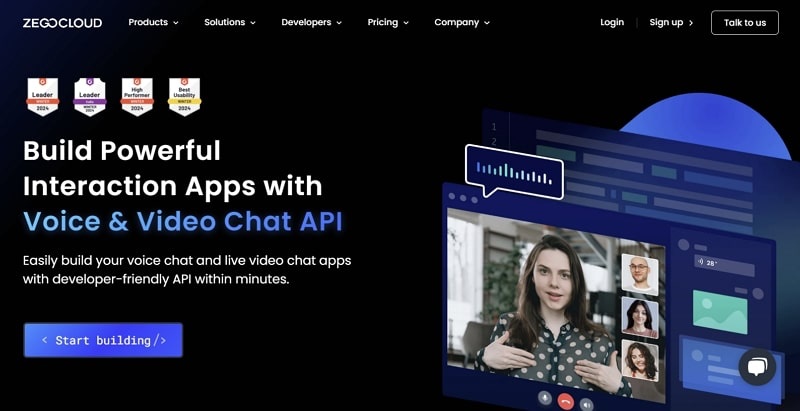Java vs JavaScript are among the top-rated programming languages in the world, along with Python. Even though these two programming languages are separate from each other, many still don’t know that they are not one. Because the two languages share half of their names, it is not uncommon to see people categorizing them as one. In this article, we will take you through the differences between Java and JavaScript programming, and their individual strengths, and help give you clarity on which you should go for.
What is the difference between Java and JavaScript?
Java and JavaScript are distinct programming languages with different purposes and characteristics. Java is a versatile, object-oriented programming language used for building complex applications, including server-side applications, desktop apps, and Android development. JavaScript, on the other hand, is primarily a scripting language used for adding interactive features to websites and is essential for front-end web development. While they share similar names, their use cases, syntax, and runtime environments are quite different.
What is Java?
Nearly three decades ago, James Gosling and his team at Sun Microsystems developed a programming language that would revolutionize the tech world – Java. Originally designed for embedded systems, Java has since expanded its reach and is now a staple for a myriad of purposes. It has become a versatile programming language, primarily for developing application-based software.
Java’s flexibility shines through its seamless flow, allowing for independent use on any software project and device. The Java Virtual Machine plays a crucial role here, translating Java code into a format understandable by any specific device. This unique capability of Java earned it the nickname “Write Once, Read Anywhere” (WORA). Java’s code can operate universally within its simulated environment, reusable anywhere without any modifications to its original form.
Advantages of using Java
Java has been one of the most powerful programming languages in the world. It’s so because of its enormous strength. That being said, here are some of the key advantages of choosing or using the Java programming language:
- Object oriented: This is perhaps one of its biggest flexes. Object-oriented languages can be reused at different times, saving the programmer’s time.
- ** Flexible:** Java isn’t just a powerful big language; it is also very flexible and can be used in many tech applications.
- Open source: With Java, you can never get stuck on a thing for long as it has a large community base. It is an open-source technology, which makes it very seamless for people across different places to contribute to it and its various libraries.
- Get anything done with Java: This awesome tech language boasts a wide number of libraries to help anyone do anything.
- Efficient in handling complex functions: Aside from being used for average tech programs, Java is very useful for handling highly advanced programs that would otherwise be undoable for many other programming languages.
- Stable and reliable: As a programming language that has been in existence for almost three decades, Java has earned its spot as a very stable language.
- Security: One reason people trust Java is because of its effective handling of crashes and vulnerability issues.
- Innovative: Over the years, Java has been continuously evolving to suit trendy technologies.
Disadvantages of Java
Despite being a great programming language, Java still has some tradeoffs to consider if you’re planning to use or learn it. Here are some of them:
- Syntax unfriendly: If you’re trying to get into programming, it is usually not advised that you start with Java.
- Can be overwhelming: Due to its age, Java has become one of the largest and most complex languages in existence.
- It’s not lightweight: About other similar programming languages, working on Java applications typically requires more resources like RAM and CPU.
- Tougher competition: Java is currently facing very strong competition from other newer programming languages that do similar things to it with much more efficiency and seamlessness.
What is JavaScript?
Imagine scrolling through a website, clicking a button, witnessing an interactive animation, or engaging with a web app that feels incredibly intuitive. That’s the magic of JavaScript! Often referred to as JS, this language is the powerhouse behind the web’s responsiveness. It’s a dynamically typed scripting language that drives web-based programming. The term “script” in JavaScript makes more sense now, doesn’t it? Working in harmony with HTML and CSS, JavaScript enhances the beauty of web pages by bringing them to life.
Brendan Eich, a developer at Netscape, created JavaScript in just 10 days. Initially, its purpose was to add interactivity to the Netscape browser. Since its inception in 1995, JavaScript has maintained its role, becoming one of the most widely used programming technologies. In fact, over 90% of modern websites incorporate it. As an interpreted language, JavaScript doesn’t require any special installation to function, unless you’re working with a specific framework. It translates code directly as the system runs it, which can make it slower than compiled languages, yet its versatility and ease of use continue to make it a popular choice among developers.
Advantages of Using JavaScript
Over time, JavaScript has grown into one of the most widely used languages for web programming. This popularity stems from its flexible nature and ability to support cross-platform development. That being said, JavaScript provides several key strengths for developers, including:
- It is interactive: When you enjoy the GUI nature of the web and its intuitive dynamics, say thanks to this programming language that makes it possible.
- Enables real-time response: Everyone reading this right now must have experienced this feature of JavaScript. It allows web pages and applications to respond to the activities we carry out on them in real time.
- Easy to learn: Thanks to its connection with HTML and CSS, JavaScript, which can be easily embedded into HTML and CSS, is very easy to understand, as having knowledge of HTML and CSS already boosts your ability to master JavaScript easily.
- Flexible libraries: JavaScript has lots of libraries and frameworks that can be used on virtually any web-based project, making it suitable for simplifying advanced programs.
- SEO-friendly: Have you ever thought of building a website for your blog? Well, adding JavaScript to your site not only makes it look good, it also helps with optimization for SEO, ensuring that search engines easily discover your site.
- Large community support: JavaScript, as one of the most used programming languages, has a very large community, and this also includes support for ensuring that whatever’s built with JavaScript won’t have a hard time finding users.
Disadvantages of JavaScript
While JavaScript may be ubiquitous for web development, the language also comes with drawbacks developers should keep in mind. Here are some of them:
- More vulnerable to attacks: This is not to undermine its security, but JS as a web language can be more vulnerable to security attacks like XSS than most programming technologies.
- Can be misused: Have you ever been scrolling casually online only for an annoying, irrelevant ad to pop up on your screen, disturbing your peace? That’s one example of how JavaScript can be misused. JavaScript gives people the ability to do anything on the web. This ability, when used by the wrong people, can be used to create tools like adware and spyware.
- Can be limiting: Aside from web-based programs, JavaScript isn’t very useful on its own in other tech areas, especially with very intensive projects like artificial intelligence.
- Large ecosystem: As a versatile technology, JavaScript has lots of frameworks, and more are created every year, making it difficult for one to gain expertise in such a language.
Java vs JavaScript: Which Should You Learn?
Choosing between Java and JavaScript depends on your goals and the type of projects you want to work on.
- Java: Best for building large-scale, complex applications such as enterprise software, Android apps, and server-side applications. It offers strong performance, scalability, and a robust ecosystem.
- JavaScript: Ideal for web development, particularly for creating interactive and dynamic user interfaces. It’s essential for front-end development and is increasingly used on the server side with Node.js.
In summary, Java is better for enterprise-level applications and mobile development, while JavaScript is superior for web development and creating interactive web experiences.
How Can I Learn Java or JavaScript in 2024?
Learning to code can open up numerous opportunities in the tech industry. Whether you want to develop web applications, mobile apps, or large-scale enterprise solutions, mastering Java or JavaScript is a great place to start. Here are three popular paths to help you learn these programming languages in 2024:
- Bootcamp: Coding boot camps are intensive courses that teach Java or JavaScript along with other job-ready technical skills. However, many coding boot camps have hefty price tags and low placement rates.
- Online Course: Many colleges and websites offer affordable or free online courses in Java or JavaScript. These courses can help you learn foundational skills but often don’t include career support.
- Apprenticeship: Learn Java or JavaScript and other in-demand technical skills through apprenticeship programs. You’ll also gain hands-on experience by completing projects for leading tech companies.
By choosing the right learning path based on your needs, you can effectively learn Java or JavaScript and start building your own projects in 2024.
ZEGOCLOUD Meets Java/JavaScript Integration
ZEGOCLOUD isn’t just a tool; it’s a portal to seamless real-time communication. Whether you’re building the next big online video meeting platform or adding a voice chat feature to your game, ZEGOCLOUD empowers you to integrate high-quality audio and video call functionalities into your applications with ease. Its magic springs from the robust and flexible SDKs and APIs that integrate and fine-tune seamlessly with both Java and JavaScript.

There is no need to be a polyglot programmer to use ZEGOCLOUD. Whether you’re a Java maestro or a JavaScript Jedi, you’ll find perfectly tailored tools at your disposal. We have SDKs and APIs that you can use to add real-time communication functionality to your app with ease!
But ZEGOCLOUD’s appeal goes beyond language versatility. Its features are what set it apart from the crowd. Below are some of its amazing features:
- Crystal-clear audio and video: Experience lag-free communication with resolutions reaching a stunning 1080p.
- Global reach: Connect users across continents with ZEGOCLOUD’s extensive global server network.
- Scalability that takes the stage: From intimate one-on-ones to bustling mass conferences, ZEGOCLOUD scales effortlessly to match your needs.
- Interactive features and engaging experiences: Share screens, add text annotations, and unleash your creativity with interactive tools.
- Security you can trust: Protect your communications with industry-standard encryption and access controls.
With ZEGOCLOUD, the only limit is your imagination. So, step into the polyglot paradise of real-time communication—choose your language, unleash your app’s voice, and let ZEGOCLOUD bridge the gap between you and your audience.
Conclusion
Java and JavaScript are two different, yet powerful, programming languages. Java is great for big projects like apps and systems. It’s strong and has been around for a long time. JavaScript is key to making websites fun and interactive. It’s easy for beginners and very popular online.
Your choice depends on what you like and your career goals. Both are useful in their own ways. Java is good for complex tasks, while JavaScript is best for web stuff. Pick the one that fits your dreams and projects best. With either Java or JavaScript, you can add real-time communication functionality to your app or website using ZEGOCLOUD. Register now to begin your journey!
Read more:
Let’s Build APP Together
Start building with real-time video, voice & chat SDK for apps today!










